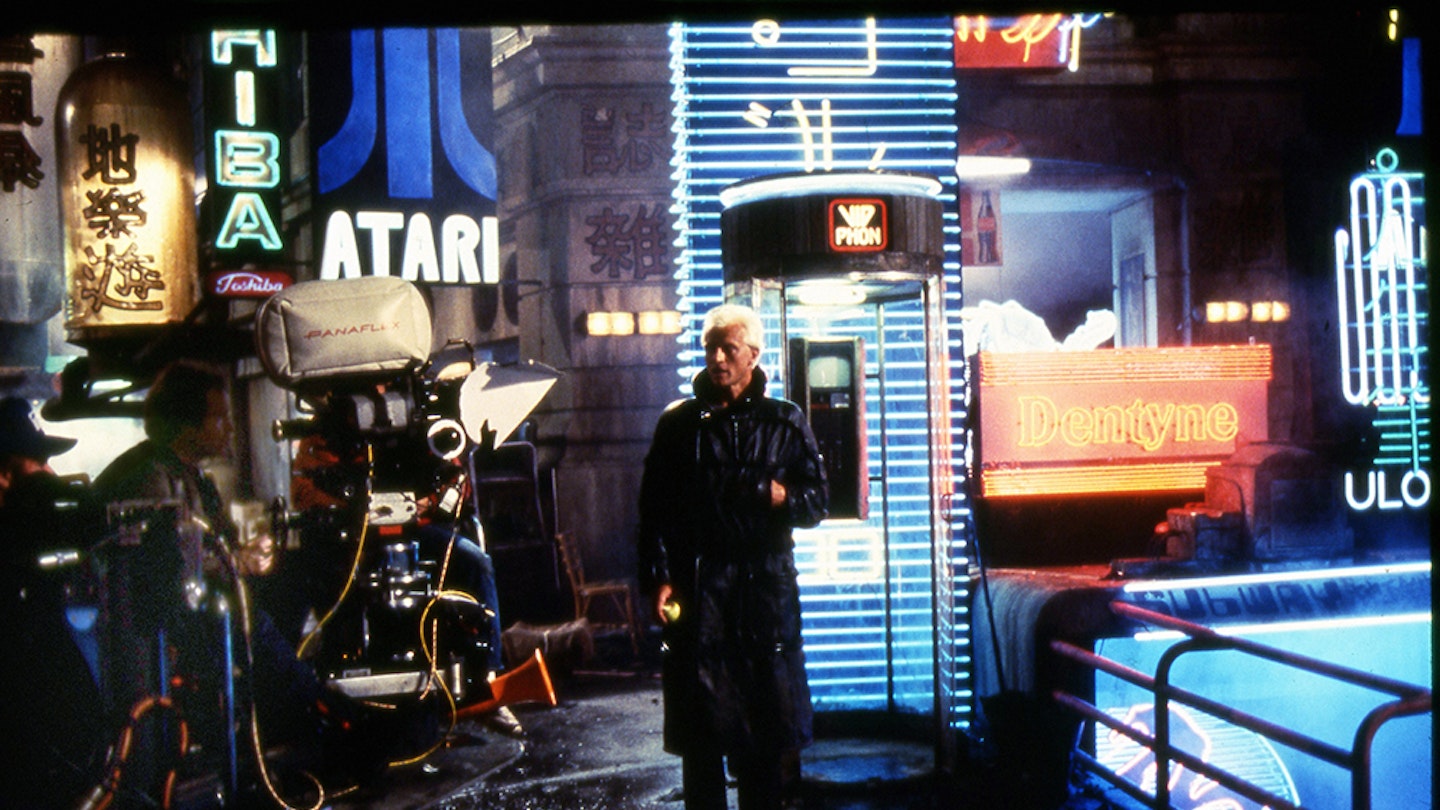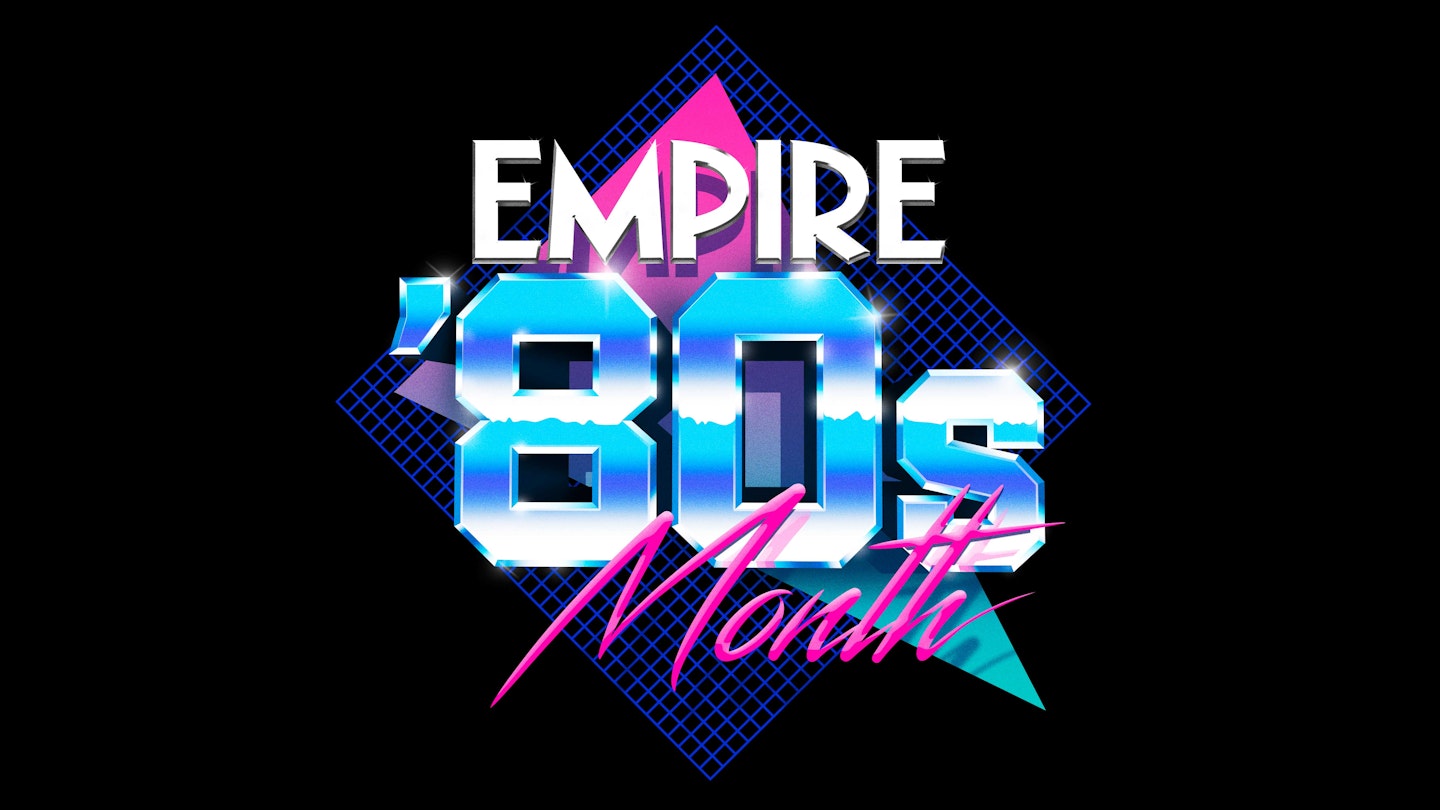
Of all his films as director, none has stayed with Ridley Scott like Blade Runner. You could say it's the picture that defines him; certainly he's described it as his most 'personal' film, and without a doubt, it's the one that he comes back to, again and again, in interviews. All conversations with Scott inevitably return to the shadowy streets of Blade Runner.
The film still stands as an emotionally challenging, thematically complex work, its ideas and subtexts just as startling as its deeply influential design. It's a haunting, hypnotic, harrowing achievement, its multi-textured ideas subversively embedded in what appears to be a mainstream Hollywood edifice. Yes, Blade Runner may be narratively flawed and (at times) self-indulgent, but it also remains one of the jewels in Scott's crown, a cinematic milestone the basic integrity, force of imagination and ideological sophistication of which radically altered the face of contemporary sci-fi.
Empire celebrated Blade Runner's 25th anniversary in 2007 by asking Scott to somehow encapsulate the film that will never leave him.
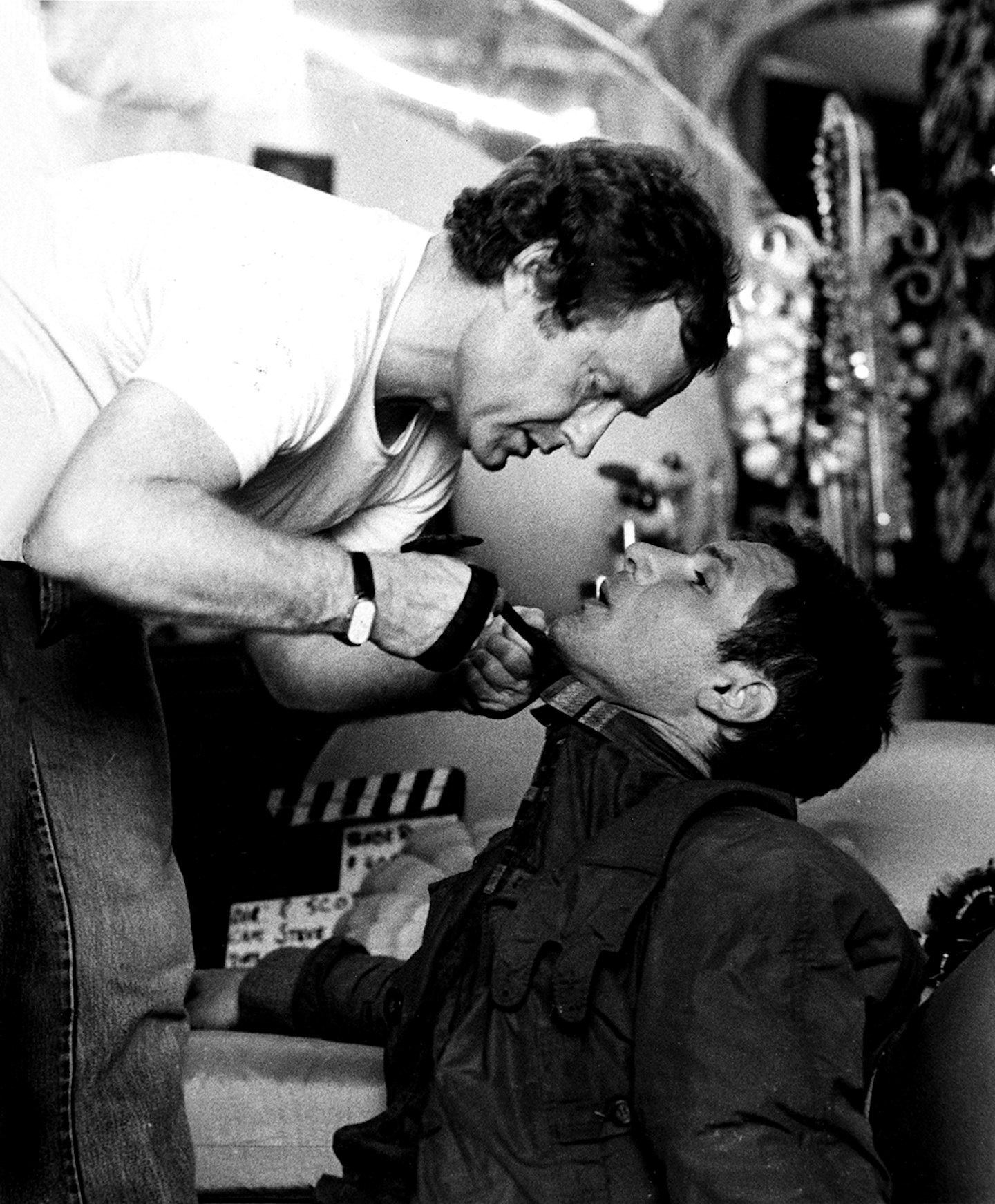
What prompted you to make the film?
Before I decided to accept Blade Runner, I was developing a dark, fantastic adaptation of Tristan And Isolde, and I was committed to producer Dino De Laurentiis to do an adaptation of Dune. After dropping out of Dune, I got restless and asked (Blade Runner producer Michael) Deeley to show me the latest version of the screenplay. It was an extraordinary piece of work that Hampton Fancher had written, titled Dangerous Days. I was drawn to the moral content, the idea of an officially sanctioned killer murdering what were, after all, really people, even if they were synthetically developed. I was also fascinated by this script's graphic possibilities. Dangerous Days crossbred a noir film with a police story with science-fiction, and I could sense a lot of opportunities in that hybrid. Days seemed to present the possibility of doing what I called "layering" back then, the building up of carefully chosen details to create a fully imagined world.
In those days, the crew didn't know what the fuck I was doing. Which was frustrating, believe me.
That excited me. How do you view the ethical issues of the replicants? They're almost comparable with slaves. I always felt I'd been a bit fanciful with the underlying concept of the replicants, really. If a society decided to produce a second-class species, that society would also probably develop it with subhuman capabilities. You wouldn't want your twin objecting to your going to its cupboard to remove its kidney. The fact that the replicants in Blade Runner are indeed intelligent complicates the situation. You immediately have a huge morality problem.
You infamously had problems with your American crew during the shoot...
Well, I didn't have problems with the crew. But you know what? I have been something as simple on the crew not understanding what I was trying to get. Now the world is educated as to special effects and such, but in those days, they didn't know what the fuck I was doing. Which was frustrating, believe me.
Also, by the time I made Blade Runner I was in overdrive. My company (RSA, for producing commercials) was going great, and I've always thought that that suggested I knew how to run a business. Alien seemed to have conclusively found its audience, too, which you would think would indicate that I know how to craft an entertainment. But by the time I got into Blade Runner, I was questioned so often about everything I did or wanted to do that the situation really pissed me off. That's when I became a screamer. I simply got fed up answering stupid questions. Things like, "Why do you want the walls of Taffy Lewis' nightclub painted gold?" "Why the hell have you got a unicorn in this motion picture?" It never stopped. I refused to take it anymore: "This is the way I want it - just DO it!"
It's honest to say that the relationship between Harrison and myself wasn't smooth.
You also clashed with Harrison Ford...
I think it's honest to say that doing Blade Runner wasn't tremendously smooth in terms of a working relationship with Harrison. There's no point in pussyfooting around that. Harrison's a very charming man, but during the filmmaking process we grew apart, mainly because of the logistics of the film I was trying to make. In concentrating on getting Blade Runner's environment exactly the way I wanted it, I probably short-changed him. Not giving him enough attention? Yes. That was a failure on my part. But when a film is being made, nobody ever thinks about the director. In fact, there were times when I could tell Harrison was displeased with me, and I'd think, "What about me?! I've got 19,000 other things to think about and deal with!" I actually said something like that to him once. I said, "Listen, this is my movie, and I have my performance as well as you have yours. And, you know, both will be brought together. That's all I can promise." Because to put [something like Blade Runner] on screen requires enormous attention to detail. The rift between Harrison and myself was very draining. At the same time, our collaboration was an exciting one, because Harrison is so smart. He's a very intelligent, incisive, and articulate man.
What about the infamous faux happy ending which wrapped up the original theatrical cut?
We screened a work-in-progress version for sneak preview audiences in Denver and Dallas. The response cards were worrying because some audience members had a problem understanding the film. A few also didn't like my original ending, which climaxed with the elevator doors closing. Now, I took some serious body blows on Blade Runner. In fact, towards the end, I was on the ropes and spittin' in the bucket. I was totally spent. So I suppose that had something to do with the original narration, which I never liked, and the new ending we shot, which showed Sean and Harrison driving away into the countryside. Basically, I was just too tired to sort things out.
I took some serious body blows on Blade Runner. Towards the end, I was on the ropes and spittin' in the bucket.
Why do you think it was a box-office flop?
I think people were confused, because they expected another experience from the one they got. Star Wars had already happened twice by then, and Harrison was an established star because of Raiders Of The Lost Ark.
A mainstream star...
As you say. An action hero. And I had done a film with visual density substituting actism, and essentially an unsympathetic character. Blade Runner taught me that the American public tends to favour a high-fibre diet. Which infers that the American system is one containing a certain degree of optimism. I, on the other hand, tend to be a bit darker. Not because I'm a manic-depressive, but because I find darkness interesting. This has something to do with my heritage. I am a Celt, and the Celts are fascinated by melancholia.
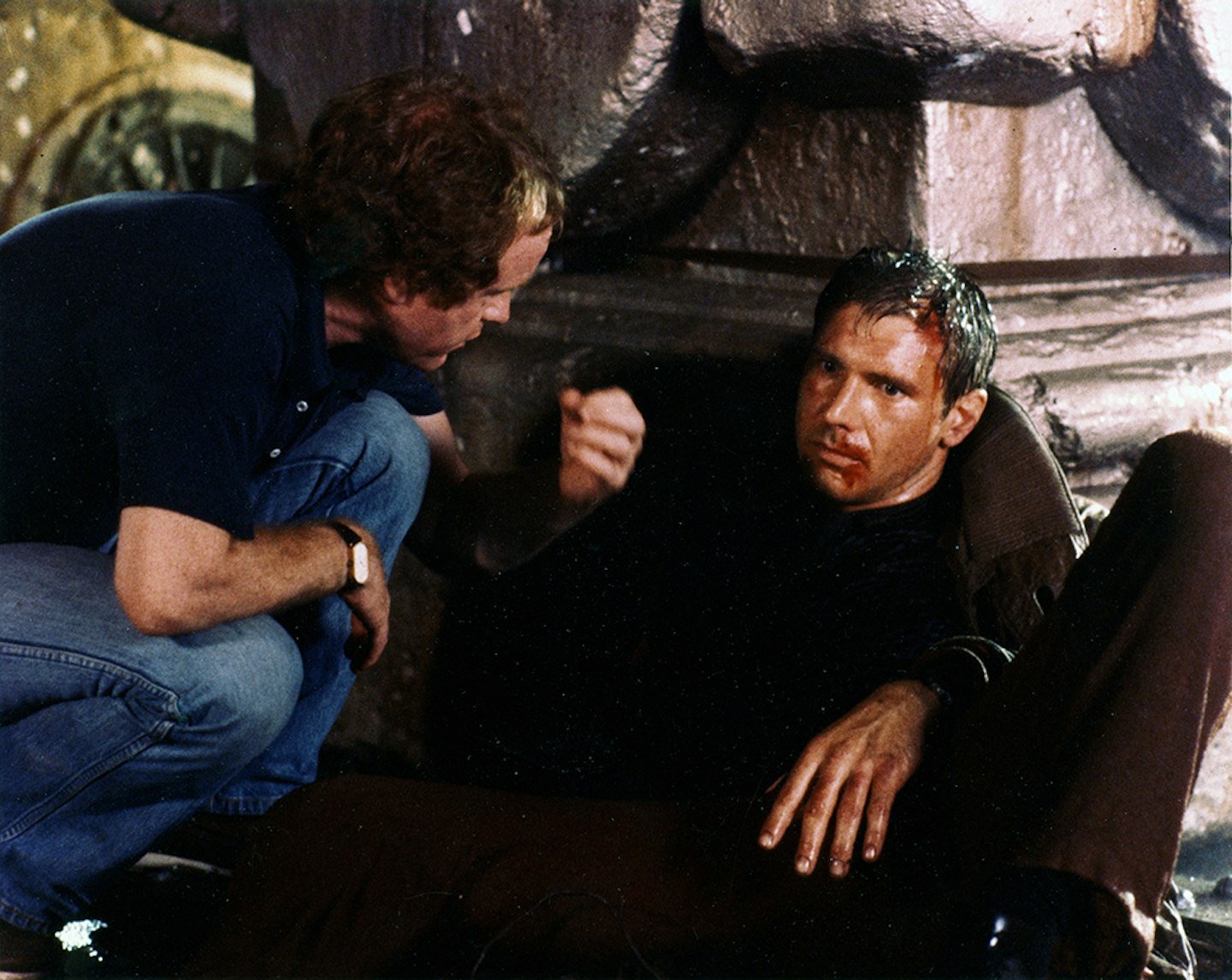
Did you take the film's failure personally?
It's safe to say I was quite disappointed. I remember going to the first preview. Harrison had to be snuck into the back of the theatre with his wife Melissa Mathison, a good writer. After the preview was over, we were sitting in this little office in the cinema. I was depressed. There had been a kind of a silence emanating off the people who were watching our movie.
Harrison was a little confused and worried as well. But then Melissa came over and I'll never forget this - and she said, "I just wanted to tell you how much I loved your movie." She said it very quietly, and she really meant it.
What is the significance of the unicorn?
So much has been made by the critics of the unicorn, yet they've actually missed the wider issue. It is not the unicorn itself which is important. It's the landscape around it - the green landscape - they should be noticing. My original thought had been to never show a green landscape during Blade Runner. We would only see an urban world. I subsequently figured, since this moment offered the pictorial opportunity of a dream, why not show a unicorn? In a forest? An image so out of place with the rest of the picture that if it ran for only three seconds, the audience would clearly understand it was some sort of reverie.
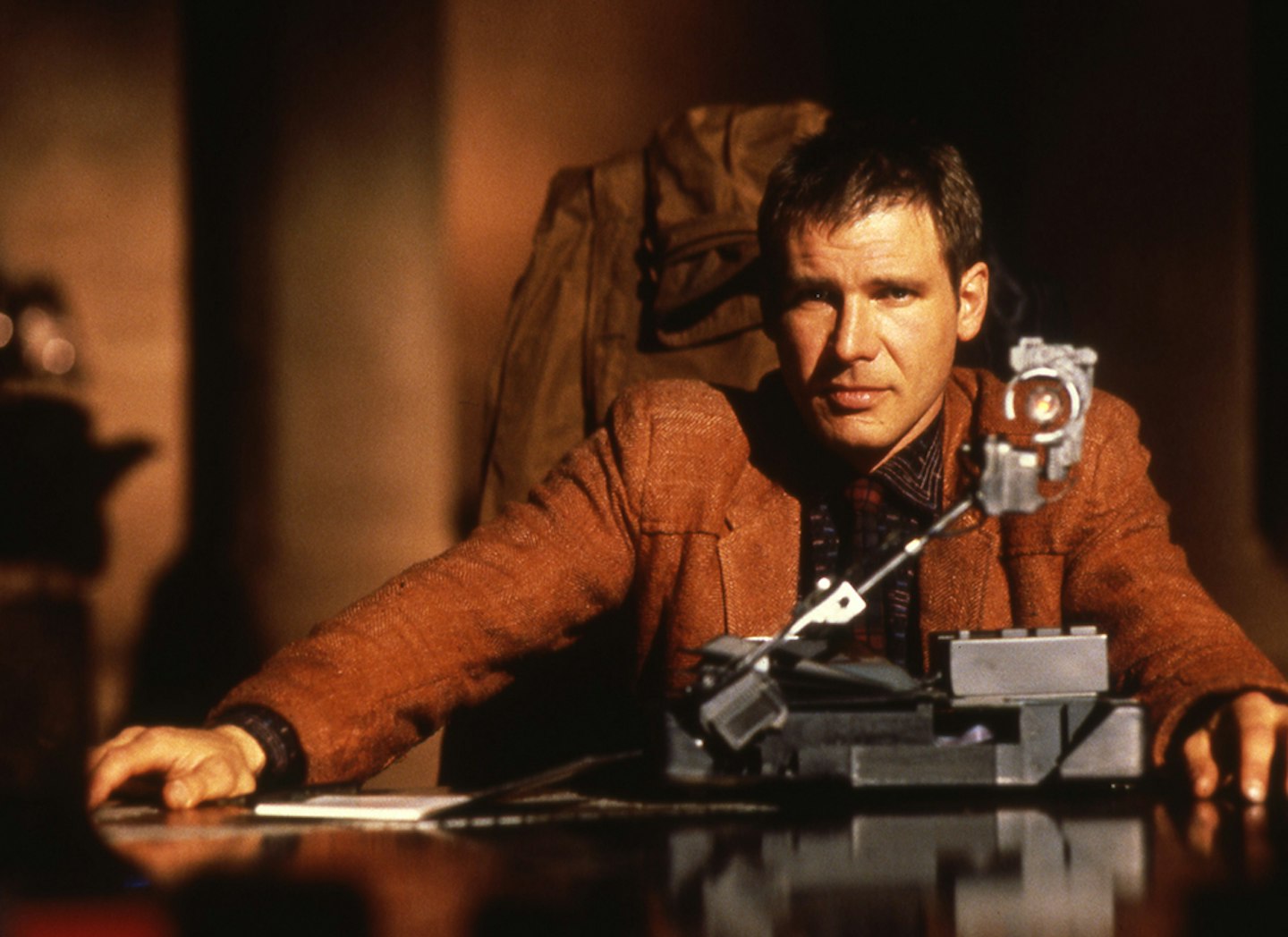
So Deckard is a replicant?
Well, in preparing the storyline, it always seemed logical to me that in a film of paranoia, Deckard should find out he was a replicant. It seemed proper that he might begin to wonder whether at some point the police department hadn't done the same thing to him. So I always felt the amusing irony about Harrison's character would be that he was, in fact, a synthetic human. I felt it should remain hidden, except from those who paid attention and got it.
Have you watched Blade Runner lately?
You know, it ran on the BBC in mid-1995, when I was home for a short time. And I thought, "I'm going to sit down and watch this thing, to see if I can last 20 minutes." It was my so-called Director's Cut. And you know what? I was absolutely stunned by how clear it was in terms of story. The removal of the voiceover also makes a tremendous difference. It works on a level which I haven't seen much - or ever - in a mainstream film. It works like a book. Like a very dark novel. Which I like. But, at bottom, I think Blade Runner is a good lesson for all serious filmmakers to stand by your guns. Don't listen to acclaim or criticism. Simply carry on, and make your movie.
This article appeared in issue of Empire, August 2007
